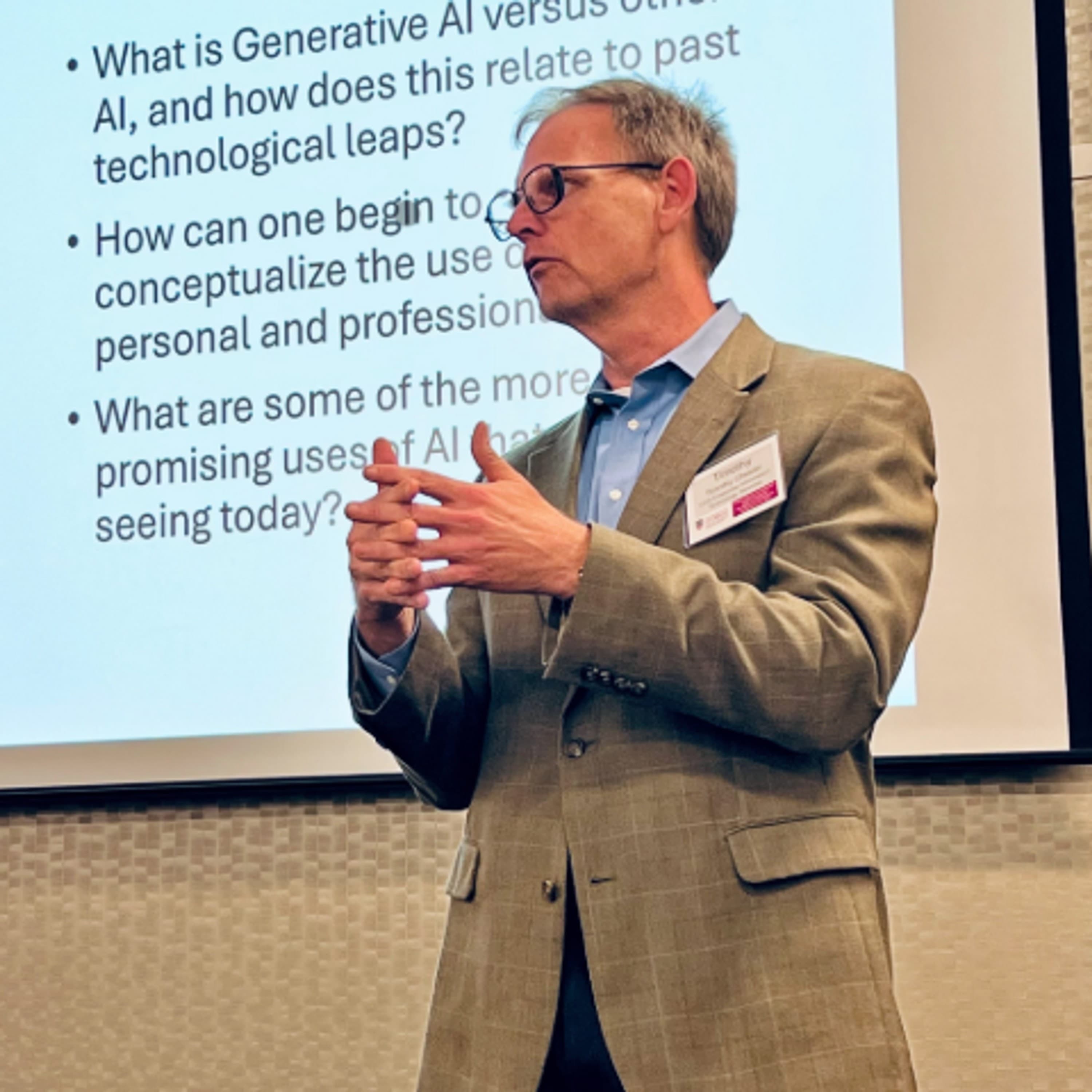Deep Drive: The Hidden Memory of Generative AI
Generative AI tools like ChatGPT, Microsoft Copilot, and Google Gemini retain more user data than most people realize, raising serious ethical, legal, and privacy concerns. In this episode, Olivia and Mark explore real-world cases, including sensitive data retention in a government agency, and the growing challenges of AI-driven profiling and data transparency. They discuss how AI systems silently build user “digital twins,” why privacy compliance is struggling to keep up, and what needs to change. If you think AI forgets, think again—tune in for a deep dive into AI memory, regulation gaps, and the urgent need for user control.
About the podcast
Technology is reshaping higher education, leadership, and the economy—but the biggest challenges aren’t just technical, they’re cultural and structural. Created by Timothy Chester, this podcast explores the real impact of AI, automation, and digital transformation on universities, work, and society. With a sociologist’s lens and decades in higher ed IT leadership, he cuts through the hype to uncover what truly matters.
Share this episode
Share with friends and family
